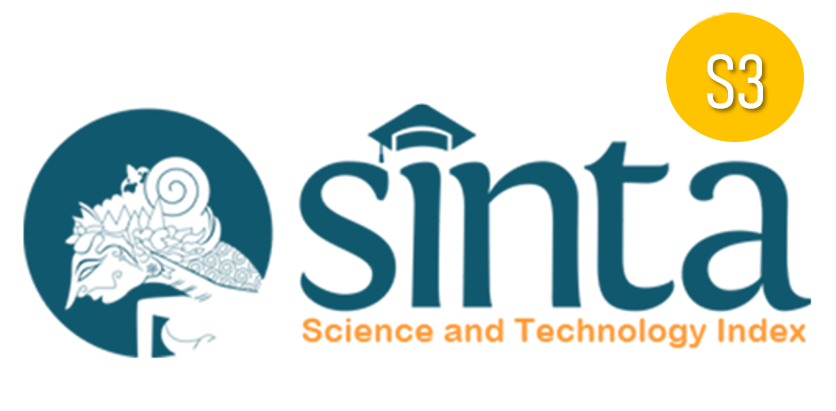Bridging Educational Gaps: Integrating ICT into Timor-Leste’s 2014 Primary Curriculum for Inclusive Digital Learning
Abstract
This systematic review investigates the integration of Information and Communication Technology (ICT) into Timor-Leste’s 2014 primary school curriculum and examines its transformative potential and implementation challenges. ICT aims to modernize education, enhance student engagement, and address inequalities in access and quality, particularly in rural and underserved communities. The review applied PRISMA guidelines and analyzed academic and institutional sources published between 2016 and 2024. Findings show that ICT improves student learning outcomes, fosters critical thinking, and enables personalized, inclusive learning. However, challenges include limited infrastructure, insufficient teacher training, and digital access disparities, especially for girls and low-income students. The study underscores the need for strategic interventions, including teacher capacity-building, infrastructure development, and gender-sensitive policies. It recommends localized digital content and inclusive digital literacy programs to ensure equitable access. These efforts align with Sustainable Development Goal 4 (Quality Education) by promoting digital equity and resilience in Timor-Leste’s education system.
Keywords
Full Text:
PDFReferences
Al-Rahmi, W. M., Alzahrani, A. I., Yahaya, N., Alalwan, N., and Kamin, Y. B. (2020). Digital communication: Information and communication technology (ICT) usage for education sustainability. Sustainability, 12(12), 5052.
Anggraeni, S. D., Ramadhan, I., Abbas, R. J., Dunggio, B. A., and Anastasia, S. G. (2025). Renewable Energy Collaboration Potentials between Indonesia and Timor-Leste through the Lense of Nationally Determined Contributions (NDCs). Journal of Islamic World and Politics, 9(1), 17-30.
Balan, Y. A., and Djuniadi, D. (2016). Implementing media of computer-based test for English language proficiency of vocational high school students at the borderline between Indonesia and Timor Leste. Smart Comp: Jurnalnya Orang Pintar Komputer, 5(1), 119-128.
Balol, N. (2023). The Use of ICT to encourage student’s engagement with collaborative Learning. International Journal of Linguistics, Literature and Translation, 6(2), 42-49.
Bolaji, H.O., and Jolaoye, J.D. (2022). Availability and utilisation of information and communications technology for effective learning habits among secondary school students. Indonesian Journal of Educational Research and Technology, 2(3), 237-246.
Büchter, R. B., Weise, A., and Pieper, D. (2020). Development, testing and use of data extraction forms in systematic reviews: a review of methodological guidance. BMC medical research methodology, 20(1), 259.
Campos, D. G., and Scherer, R. (2024). Digital gender gaps in Students’ knowledge, attitudes and skills: an integrative data analysis across 32 Countries. Education and Information Technologies, 29(1), 655-693.
Chen, H., and Huang, Y. (2024). The impact of digital learning platforms on student motivation in high school. Journal of Education, Humanities and Social Sciences, 39(4), 391-395.
Chisamya, G., DeJaeghere, J., Kendall, N., and Khan, M. A. (2012). Gender and education for all: Progress and problems in achieving gender equity. International journal of educational development, 32(6), 743-755.
Dawson, S., Heathcote, L., and Poole, G. (2010). Harnessing ICT potential: The adoption and analysis of ICT systems for enhancing the student learning experience. International Journal of Educational Management, 24(2), 116-128.
Grande-de-Prado, M., Cañón, R., García-Martín, S., and Cantón, I. (2020). Digital competence and gender: Teachers in training. A case study. Future Internet, 12(11), 204.
Herodotou, C., Hlosta, M., Boroowa, A., Rienties, B., Zdrahal, Z., and Mangafa, C. (2019). Empowering online teachers through predictive learning analytics. British Journal of Educational Technology, 50(6), 3064-3079.
Ibarrientos, J.N. (2024). Competency level in information and communications technology (ICT) of teachers: Basis for a technological, pedagogical and content knowledge (TPACK) readiness training program. Indonesian Journal of Teaching in Science, 4(1), 47-60.
Jung, I. (2005). ICT-pedagogy integration in teacher training: Application cases worldwide. Journal of Educational Technology & Society, 8(2), 94-101.
Knezek, G., Christensen, R., and Furuta, T. (2019). Validation of a teacher educator technology competencies survey. Journal of Technology and Teacher Education, 27(4), 465-498.
Kozma, R. (2005). National policies that connect ICT-based education reform to economic and social development. Human Technology, 1(2), 117-156.
Lopes, B., Lucas, M., Albergaria-Almeida, P., and Martinho, M. (2017). Training Timorese Science teachers in the context of international cooperation: what role could ICT play?. Conexão Ciência, 12, 416-423.
Lucas, M., Cabrita, I., and Ferreira, A. (2015). Pathways to change: improving the quality of education in Timor-Leste. Procedia-Social and Behavioral Sciences, 186, 732-738.
Msambwa, M. M., and Daniel, K. (2024). A systematic literature review on the ICT integration in teaching and learning: Lessons for an effective integration in Tanzania. European Journal of Education, 59(4), e12696.
Munje, P. N., and Jita, T. (2020). The impact of the lack of ICT resources on teaching and learning in selected South African primary schools. International Journal of Learning, Teaching and Educational Research, 19(7), 263-279.
Park, S., Freeman, J., and Middleton, C. (2019). Intersections between connectivity and digital inclusion in rural communities. Communication Research and Practice, 5(2), 139-155.
Rana, K., and Rana, K. (2020). ICT integration in teaching and learning activities in higher education: A case study of Nepal's teacher education. Malaysian Online Journal of Educational Technology, 8(1), 36-47.
Reynolds, R., Aromi, J., McGowan, C., and Paris, B. (2022). Digital divide, critical‐, and crisis‐informatics perspectives on K‐12 emergency remote teaching during the pandemic. Journal of the Association for Information Science and Technology, 73(12), 1665-1680.
Selçuk, A. A. (2019). A guide for systematic reviews: PRISMA. Turkish Archives of Otorhinolaryngology, 57(1), 57.
Shum, S. B., and Luckin, R. (2019). Learning analytics and AI: Politics, pedagogy and practices. British Journal of Educational Technology, 50(6), 2785-2793.
Shymansky, J. A., Wang, T. L., Annetta, L. A., Yore, L. D., and Everett, S. A. (2013). The impact of a multi-year, multi-school district K-6 professional development programme designed to integrate science inquiry and language arts on students' high-stakes test scores. International Journal of Science Education, 35(6), 956-979.
Warschauer, M., and Matuchniak, T. (2010). New technology and digital worlds: Analyzing evidence of equity in access, use, and outcomes. Review of Research in Education, 34(1), 179-225.
Younie, S. (2006). Implementing government policy on ICT in education: Lessons learnt. Education and Information technologies, 11(3), 385-400.
DOI: https://doi.org/10.17509/ijert.v6i1.88065
Refbacks
- There are currently no refbacks.
Copyright (c) 2025 Universitas Pendidikan Indonesia (UPI)

This work is licensed under a Creative Commons Attribution-ShareAlike 4.0 International License.







.png)




